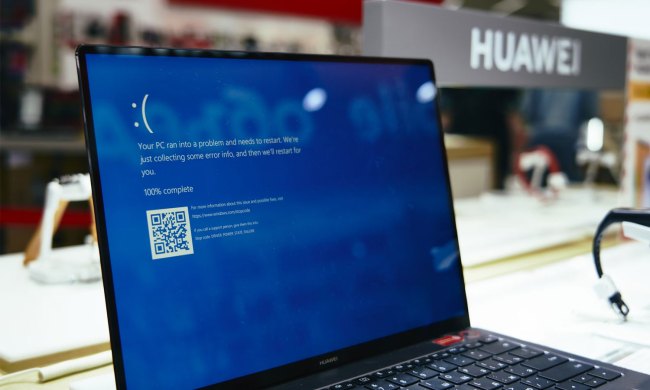
It’s become increasingly clear that users who lost files due to the US government’s seizure of Megaupload will, most likely, never get their files back. First of all, Megaupload’s hosting company, Carpathia Hosting, will allegedly begin deleting files on Thursday due to non-payment by Megaupload. Second — and here’s the stickler — Megaupload never guaranteed that files stored on its servers would remain accessible to users in the first place.
“To the extent there are users that do have copies stored on Megaupload.com, it is important to note that Mega clearly warned users not to keep a sole copy of material on the site,” a Department of Justice spokesperson told Digital Trends last week, via email. “In fact, Megaupload.com expressly informed users through its Frequently Asked Questions (‘FAQs’) and its Terms of Service that users have no proprietary interest in any of the files on Megaupload’s servers, they assume the full risk of complete loss or unavailability of their data, and that Megaupload can terminate site operations without prior notice.”
Of course, Mega was primarily used for sharing files, not storing them long-term. (Though it’s obvious now that many people used it for the latter purpose.) Still, this got us thinking: Do any cloud storage services guarantee your files will be safe and sound? We took a look at the Terms of Service of a number of popular cloud storage and file-sharing companies. And what we found was, well, not good. Take a look:
Dropbox
You, and not Dropbox, are responsible for maintaining and protecting all of your stuff. Dropbox will not be liable for any loss or corruption of your stuff, or for any costs or expenses associated with backing up or restoring any of your stuff.
Box
Box is in no way liable for loss of customer data. Under no circumstances will Box be held accountable for any loss of customer data. By becoming a Box user you, the customer, acknowledge that you forfeit the right to hold Box accountable for any and all technical errors, including loss of user files (customer data).
Rapidshare
The user is responsible for the backing up (to his own computer or other devices) of the files that he stores or accesses on RapidShare’s servers. RapidShare does not guarantee or warrant that any content that the user saves, stores or accesses through the service will not be subject to inadvertent damage, corruption or loss.
Google Docs
…YOU EXPRESSLY UNDERSTAND AND AGREE THAT GOOGLE, ITS SUBSIDIARIES AND AFFILIATES, AND ITS LICENSORS SHALL NOT BE LIABLE TO YOU FOR:
A) ANY DIRECT, INDIRECT, INCIDENTAL, SPECIAL CONSEQUENTIAL OR EXEMPLARY DAMAGES WHICH MAY BE INCURRED BY YOU, HOWEVER CAUSED AND UNDER ANY THEORY OF LIABILITY.. THIS SHALL INCLUDE, BUT NOT BE LIMITED TO, ANY LOSS OF PROFIT (WHETHER INCURRED DIRECTLY OR INDIRECTLY), ANY LOSS OF GOODWILL OR BUSINESS REPUTATION, ANY LOSS OF DATA SUFFERED, COST OF PROCUREMENT OF SUBSTITUTE GOODS OR SERVICES, OR OTHER INTANGIBLE LOSS;
(B) ANY LOSS OR DAMAGE WHICH MAY BE INCURRED BY YOU, INCLUDING BUT NOT LIMITED TO LOSS OR DAMAGE AS A RESULT OF:
…
(III) THE DELETION OF, CORRUPTION OF, OR FAILURE TO STORE, ANY CONTENT AND OTHER COMMUNICATIONS DATA MAINTAINED OR TRANSMITTED BY OR THROUGH YOUR USE OF THE SERVICES
…THE LIMITATIONS ON GOOGLE’S LIABILITY TO YOU IN PARAGRAPH 15.1 ABOVE SHALL APPLY WHETHER OR NOT GOOGLE HAS BEEN ADVISED OF OR SHOULD HAVE BEEN AWARE OF THE POSSIBILITY OF ANY SUCH LOSSES ARISING.
Amazon Cloud Drive
We do not guarantee that Your Files will not be subject to misappropriation, loss or damage and we will not be liable if they are. You’re responsible for maintaining appropriate security, protection and backup of Your Files.
Microsoft SkyDrive
You’re responsible for backing up the data that you store on the service. If your service is suspended or canceled, we may permanently delete your data from our servers. We have no obligation to return data to you after the service is suspended or canceled. If data is stored with an expiration date, we may also delete the data as of that date. Data that is deleted may be irretrievable.
You get the point: If you fail to back-up your data, it’s your fault if it’s lost forever, full stop. These companies protect themselves from lawsuits by removing all responsibility to keep user files accessible. Therefore, storing your files exclusively on a cloud service is a terrible idea.
Out of the cloud storage companies we investigated (and by no means did we look at all of them), there were a few exceptions. The first is Carbonite. While its Terms of Service were significantly more jumbled with legalese than the rest (save Google), their policy appears slightly better for the end user than the rest. And by that, we mean that Carbonite may, in some instances, refund you the $60 it charges for a year’s subscription to its service. But not necessarily.
The second is Nasuni, which is the only company we found that offers a 100 percent guarantee on 24/7 uptime, and 100 percent access to your data. Unfortunately, Nasuni is exclusively geared toward businesses, so it’s not really a viable option for most casual cloud-storage users.
In the end, storing your files in a single location — be that on your home computer, an external drive, or a cloud storage service — it’s not wise computing. We recommend keeping important files in a minimum of three locations; all of the above would be a good place to start. Too bad someone didn’t tell Megaupload users that before they lost their files.
[Image via O.Bellini/Shutterstock]


